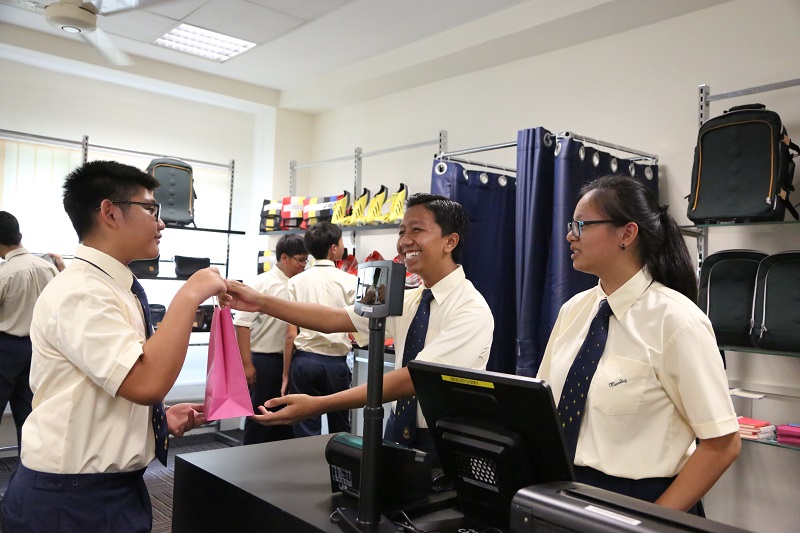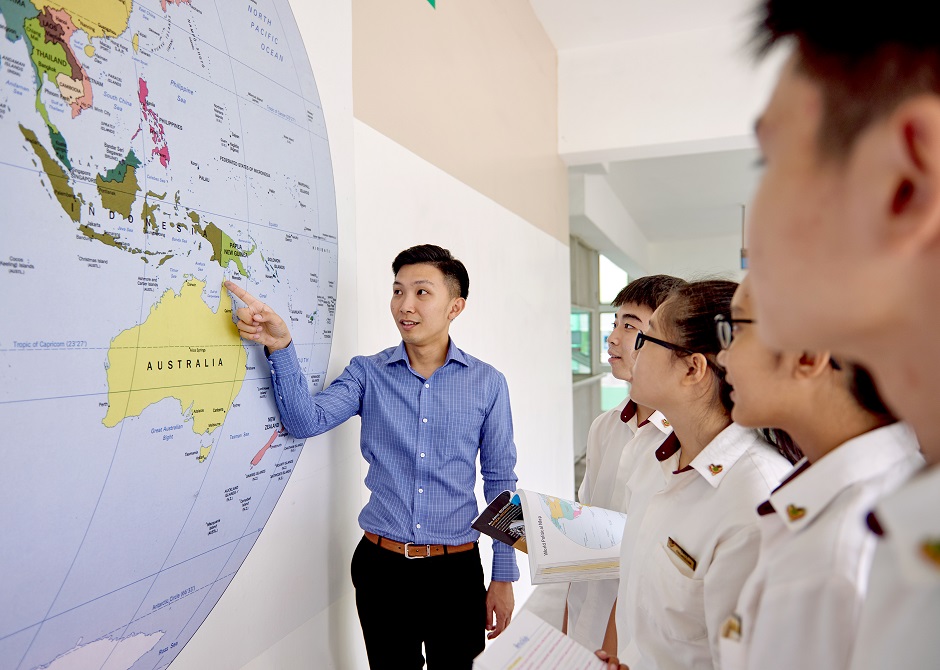At Marsiling Secondary School, cleaning out display shelves and vacuuming the floor of a mock shop front is part of their lesson in the retail operations elective module for upper secondary students.
Over the course of two years, students in the Normal (Technical) stream learn to promote products, manage a store’s inventory and interact with customers. Through theory lessons and role-play, students would also be taught the skills required to operate different types of retail stores, as well as to handle customers in various situations.
“The programme is to provide the students with experience on what retailing is all about, but on a micro scale,” explains Ms Noor Asyikin Mustaffa, an Institute of Technical Education (ITE) lecturer who is conducting the course at Marsiling Secondary. For students interested in a retail career, the programme would also provide them with some technical knowledge before they go on to specialise in the field at the ITE.
To facilitate lessons, Marsiling Secondary School has revamped a classroom so that the curriculum can incorporate practical and theory components. Half of the classroom space has been converted to a simulated store front, complete with display shelves and racks stocked with products, clothing and accessories, as well as a fitting room and a cashier’s till, so that students can try their hand at role-playing retail staff and customers. The other half of the room remains as a classroom space where students will learn theoretical concepts and skills required in retailing.
Learning to be patient and tolerant
Other than learning the technical ropes of running a retail store, the programme also emphasises the importance of patience and tolerance, which are crucial soft skills in the service-oriented industry.
“When retail staff come face-to-face with difficult customers, they can’t tell the customer off – whether they like it or not,” explains Ms Asyikin. “In class, I would have to remind the students that even if they are not wrong, they should not clash with the customer, and that there are other ways of approaching the situation.”
While it takes time to learn these values, students have gradually made improvement over the course of the programme. They will also learn to apply these values in their daily interactions.
“They are more tolerant towards one another. There was a student in my class who has mild autism and his classmates used to poke fun at him, until they saw how hard he struggled with practical lessons,” shares Ms Asyikin. “Upon learning how we are all different in strengths and skills, the students realised what they did wasn’t right, and they changed the way they dealt with their classmate.”
“It is also easy to for us to dismiss retailing as the level of entry to the industry is rather low,” shares Ms Asyikin. “Retailing is present everywhere, from the provision shop at a void deck, to a big department store. It is an integral part of our lives.”
Ms Asyikin has observed that her students found retailing to be a fulfilling experience. “Before starting on the programme, students have told me that they don’t think selling is that difficult,” she shares. “But after learning more about the industry, they have come back to say they’ve realised it’s not so easy being a retailer. They could mention instances of good or poor service being delivered – they now know that they can make a difference to the industry.”
For Secondary Three student Ong Zhi Qian, he is looking to expand his knowledge of the retail industry through the programme. His interest in retail was sparked when he began helping his mother, who sells plastic products at a store. “I enjoyed talking to customers and the process of introducing the various kinds of products to them,” he shares.




.jpg)

